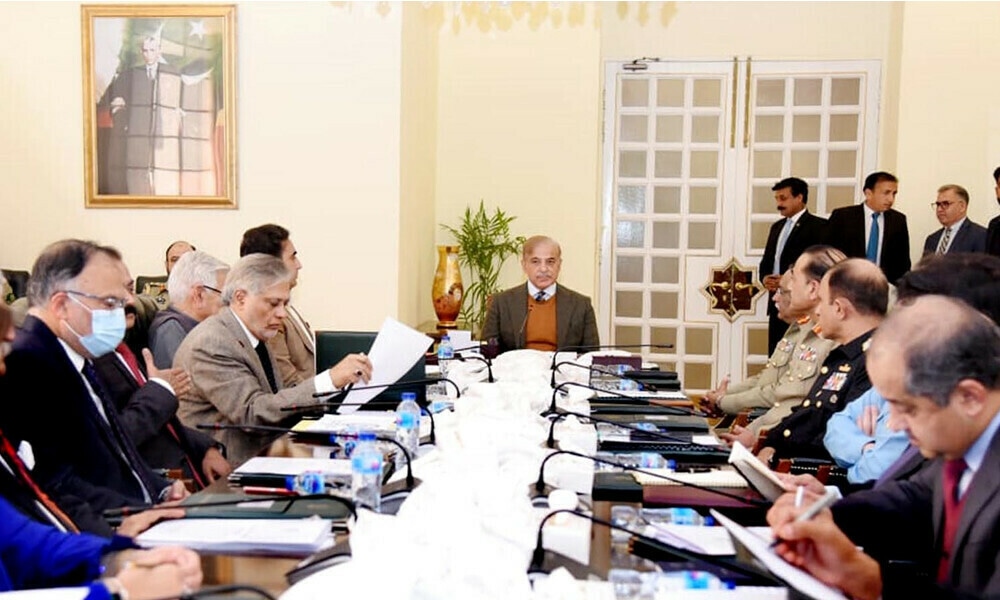Prime Minister Shehbaz Sharif will chair an important meeting of the National Security Committee (NSC) today. The session will address the growing tensions triggered by India’s recent steps following the Pahalgam attack in Indian Illegally Occupied Jammu and Kashmir (IIOJK).
Deputy Prime Minister and Foreign Minister Ishaq Dar confirmed this. Speaking to the media, he said, “The National Security Committee will issue a complete and firm response to India.” The meeting is scheduled for 11am and will include top civil and military leadership. They will review internal and external security threats, including India’s newly announced measures.
Dar criticized India’s reaction as “irresponsible and unserious.” He said New Delhi had provided no evidence connecting Pakistan to the Pahalgam incident. According to him, blaming Pakistan without proof is unfair. He accused India of trying to divert attention from its internal chaos by pointing fingers at Pakistan.
India’s government, led by Prime Minister Narendra Modi, has announced harsh decisions. These include the suspension of the Indus Water Treaty, a key river-sharing pact between the two countries. The treaty, brokered by the World Bank, allows India control over the eastern rivers—Ravi, Beas, and Sutlej. Meanwhile, Pakistan has rights over the western rivers—Indus, Jhelum, and Chenab.
Other aggressive steps by India include closing the Integrated Check Post at Attari. Indian authorities have also issued a deadline for all Pakistani nationals to leave by May 1, 2025. Furthermore, they have canceled all SAARC Visa Exemption Scheme (SVES) visas given to Pakistani citizens. Those already in India under this scheme must exit within 48 hours.
India has declared Pakistan’s military, naval, and air advisors in New Delhi as persona non grata. They must leave within seven days. India will also withdraw its own defense officials from Islamabad. Additionally, the strength of India’s diplomatic mission in Islamabad will be reduced from 55 to just 30 by May 1.
Defence Minister Khawaja Asif also spoke about the current situation. He said all of India’s concerns will be discussed in today’s NSC session. During a talk show, “Aaj Shahzeb Khanzada Kay Sath,” Asif said India cannot withdraw from the river treaty unilaterally. “This water agreement is not just a deal between India and Pakistan. The World Bank is also a stakeholder,” he stated.
Asif revealed that India has always tried to exit the Indus pact, but Pakistan stands ready to defend its rights. He also emphasized that Pakistan had no role in the Pahalgam attack. “We reject terrorism in all forms and everywhere,” he said firmly.
Speaking to the press, Asif said India must investigate the attack instead of blaming others. He said India faces resistance not just in Kashmir but in other regions too. “There are uprisings in Nagaland, Manipur, Chhattisgarh, and many other states,” he said. “These are internal revolts, not foreign conspiracies.”
The Defence Minister also warned that the Pahalgam attack could be a false flag operation. His fears have been echoed by several military analysts. Former Senator Mushahid Hussain Syed, a veteran in foreign affairs, criticized India’s habit of accusing Pakistan after every major incident. He said this strategy fuels war rhetoric and spreads hatred through Indian media and social platforms.
The situation remains tense. Pakistan’s leadership is preparing a united and strong response. At the heart of the matter is the fate of the Indus Water Treaty, a cornerstone of peace and cooperation in the region.


